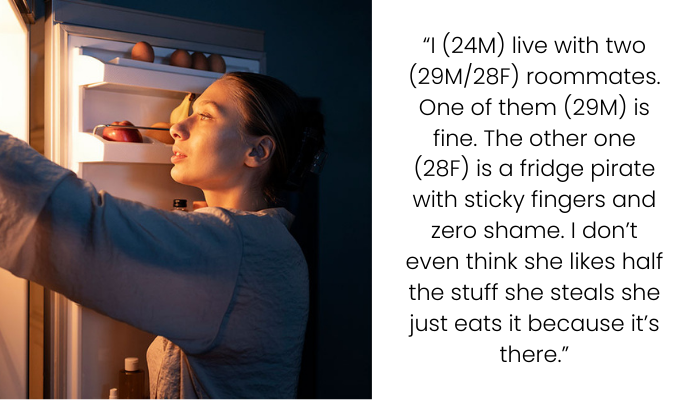He Locked Up His Snacks and Drove His Roommate Nuts—And Honestly, Same
In a hilariously relatable post, Reddit user u/[Wineatfiveisfine] vents their fridge-related frustrations with a roommate who can’t seem to keep her hands off other people’s food—specifically, his precious asadero cheese, a special treat from his home country. After finding the cheese missing and hearing a dismissive “it’s just cheese” from the culprit, OP decided to take matters into his own hands: he installed a fridge lockbox, labeled it with a jokingly intense warning, and stored all his favorite goodies inside. Cue chaos.
The accused roommate is now accusing OP of “creating division” in the house and being “hostile,” but OP insists that the lockbox (and the note) are lighthearted responses to a chronic issue. With one roommate staying out of the fray and the cheese thief offering to buy him lunch as a peace offering, the situation might just be defusing—but not without sparking major debate online.
This post isn’t just about dairy. It’s a window into the larger issue of shared living dynamics, respect for boundaries, and how petty theft—yes, even of cheese—can push someone to the brink.
Out of all crimes a roommate can commit, stealing food is one of the most frustrating

And this guy has, unfortunately, realized it firsthand
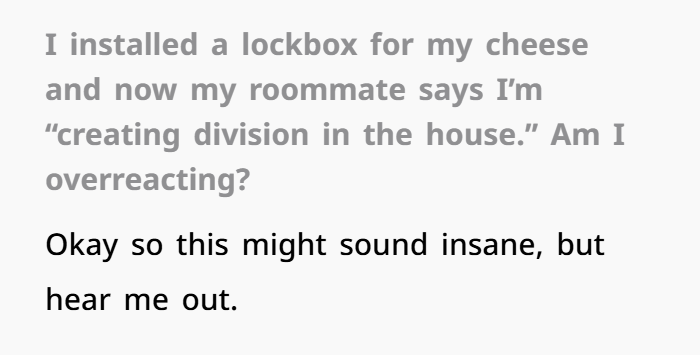
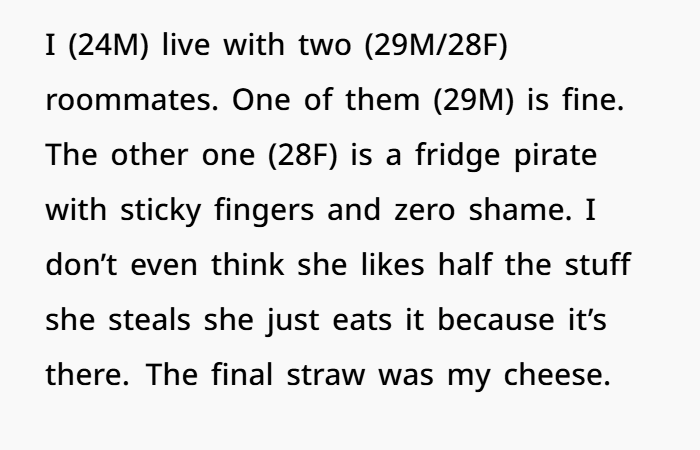
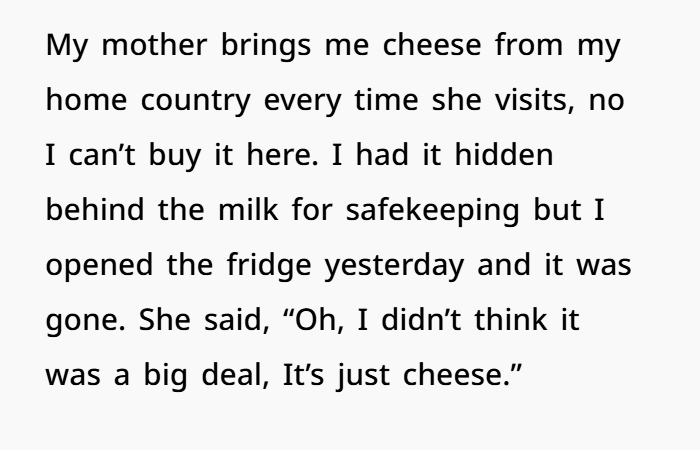
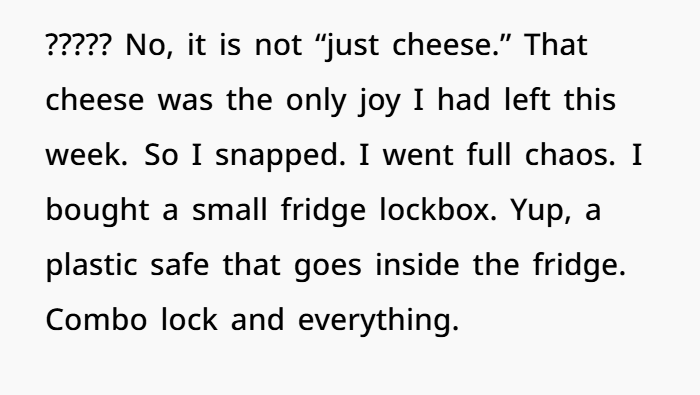
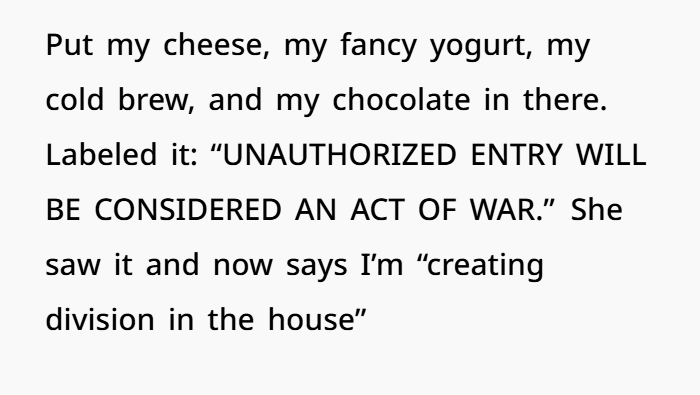
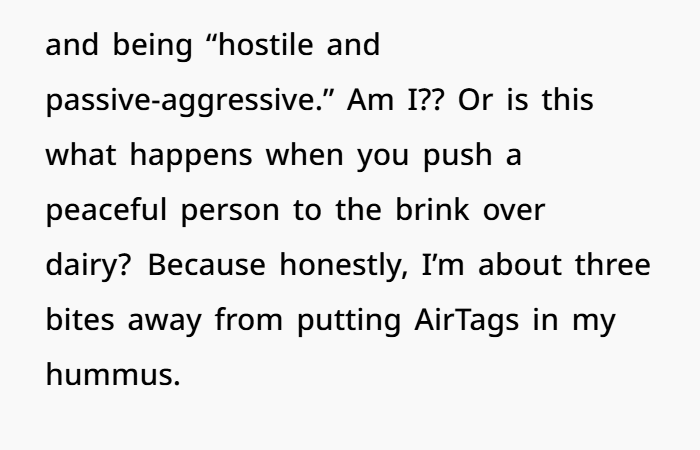

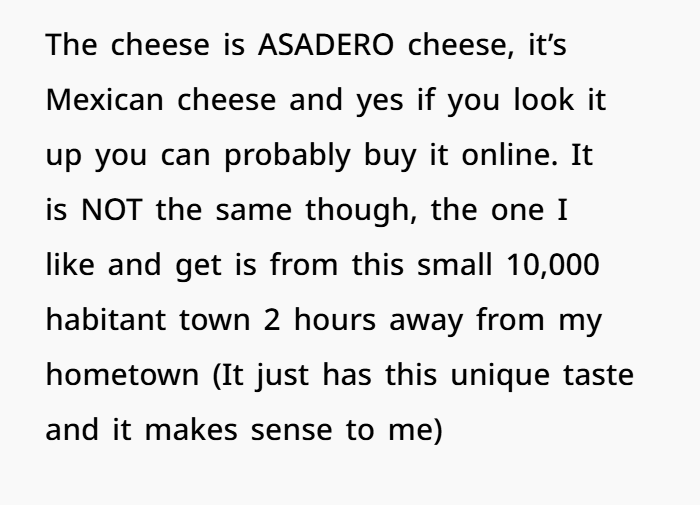
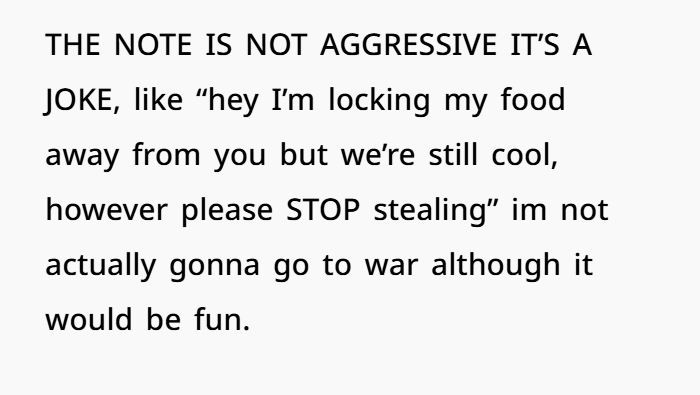
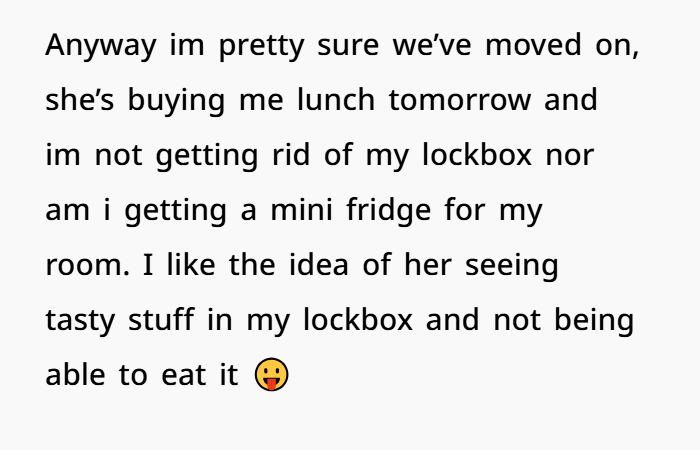
Shared Living, Personal Boundaries, and the Great Fridge Wars
The Emotional Value of “Small” Things
To many, food is just sustenance. But for others, especially immigrants, expats, or those living far from home, food can carry immense emotional weight. OP’s asadero cheese isn’t just cheese—it’s a connection to culture, family, and memory. When something like that is taken or dismissed as insignificant, it can feel invalidating and even erasing. The roommate’s flippant “it’s just cheese” dismisses the deeper emotional significance and is emblematic of a broader issue: not just stealing food, but stealing joy.
This resonates deeply in roommate conflicts. What may seem “minor” to one party is often symbolic for the other. And when repeated, these “minor” infractions escalate into what psychologists call accumulated grievances—small slights that compound until the emotional reaction seems disproportionate but is actually quite rational in context.
Legal and Ethical Boundaries in Shared Housing
Legally, stealing someone else’s food isn’t a criminal offense in most roommate scenarios—it’s not grand larceny—but it can constitute theft under certain conditions. In legal terms, theft involves taking something that belongs to someone else without permission, and intent matters. If this roommate is regularly helping herself to OP’s clearly designated food, she’s violating both ethical and civil boundaries.
In shared living contracts (formal or informal), food-sharing norms must be explicit. If no prior agreement exists, each person’s groceries are off-limits unless shared or labeled. In absence of this, friction inevitably follows.

This is why communication and boundary-setting is so essential. A simple kitchen whiteboard or fridge shelf system can preempt a lot of drama. But once the trust is broken—as it seems it has been here—some form of protective measure (like OP’s lockbox) is often the only way to regain peace of mind.
The Psychology of Fridge Theft
Why do roommates steal food? It’s often not about need—it’s about convenience, entitlement, or just poor boundaries. In a 2019 poll by YouGov, 1 in 5 Americans admitted to stealing their roommate’s food, and nearly half of all respondents said they’ve had food stolen by someone they live with (source). Many of these incidents are brushed off as harmless, but they can deeply impact household dynamics.
Clinical psychologist Dr. Andrea Bonior explains that repeated low-stakes violations (like food theft) are a sign of disregard for others’ autonomy. When one roommate consistently ignores the other’s ownership over food, time, or space, it becomes a power imbalance, not just a quirky habit.
Lockboxes, Passive Aggression, and Social Contracts
The lockbox solution isn’t passive-aggressive—it’s defensive. Passive aggression is when someone expresses hostility indirectly, often through subtle digs or unspoken resentment. OP, by contrast, is very direct: he’s protecting his stuff and adding a bit of levity with the “act of war” note, which clearly isn’t meant to be taken literally.
But the roommate’s accusation of “division” taps into another social contract of shared living: collectivism vs. individualism. In roommate situations, there’s often an unspoken pressure to be “chill,” to go with the flow, and to avoid being the one who makes things awkward. But that pressure often falls hardest on the person whose boundaries are being trampled.

In this case, OP was being the “chill” one for too long. The lockbox is a boundary marker—literally and figuratively—and the roommate’s reaction says more about her guilt than his hostility.
The Internet’s Verdict and Cultural Trends
Reddit overwhelmingly supports OP. The thread’s explosion reflects a broader cultural trend: people are increasingly protective of their boundaries, especially post-pandemic when many of us have had to reassert control over shared spaces. The popularity of mini fridges, lockboxes, and chore apps reflects a growing awareness that peaceful cohabitation requires systems, not just vibes.
Moreover, food-related drama has practically become its own Reddit genre. From stolen leftovers to kitchen sabotage, these stories resonate because they represent the friction of adulting in close quarters.
Many of those who read the story believe the guy’s response was totally reasonable


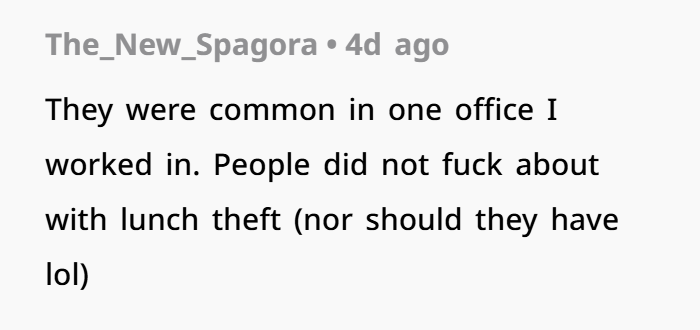
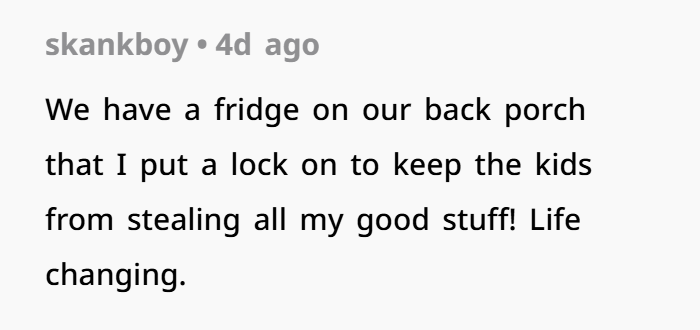
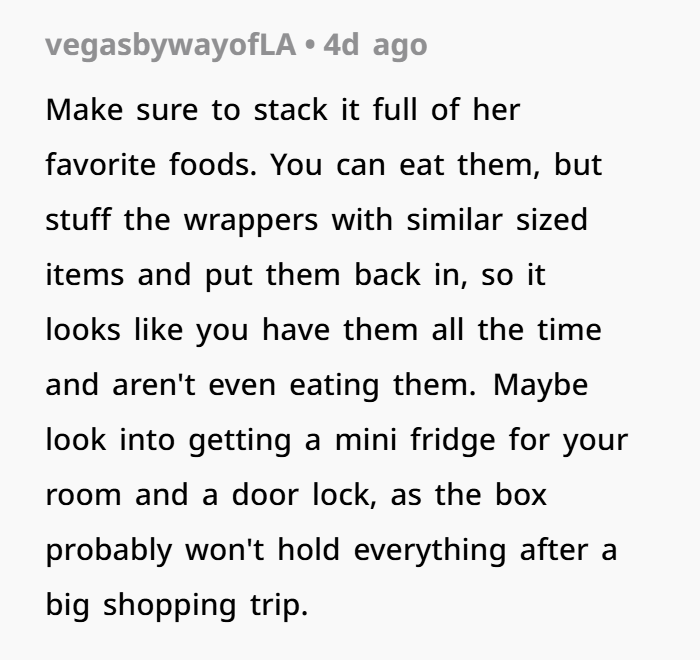
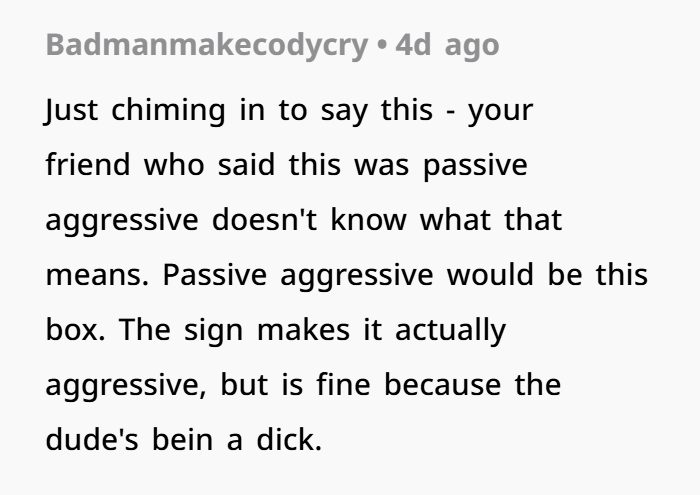
Is He Overreacting?
Absolutely not. OP isn’t overreacting—he’s reacting finally and appropriately to repeated disrespect. His use of a fridge lockbox is both a practical solution and a symbolic reclaiming of agency in a shared space where his needs were consistently dismissed.
What’s more, his approach—adding humor to a clear boundary—shows emotional intelligence, not hostility. It’s a way to say: “I’m setting this boundary, but I still want to live peacefully with you.” And based on the update, it seems the roommate got the message.

